This post may contain affiliate links. Please read our disclosure policy.
This article was written by Amanda Sevilla, RDN.
A plant-based/vegan diet has gained enormous popularity in the past few decades, especially with the abundance of free and fast information we get through the media. Unfortunately, with this abundance of free and fast information comes free, fast, and false information based on opinions and old or biased research about nutrition. In health and nutrition, veganism seems to be the subject of misinformation about its inadequacy. I’ve compiled a few common vegan nutrition myths with information that will hopefully set them straight in your mind.
Myth: You can’t build muscle on a vegan diet.

According to a position paper written by the Academy of Nutrition and Dietetics in 2016, “an appropriately planned vegetarian, including vegan, diets are healthful, nutritionally adequate, and may provide health benefits for the prevention and treatment of certain diseases. In addition, these diets are appropriate for all stages of the life cycle, including pregnancy, lactation, infancy, childhood, adolescence, older adulthood, and athletes.” Simply put, a well-planned plant-centric diet can offer nutrients that are incredibly beneficial for all people. Research also supports the fact that dietary protein derived from plant sources builds muscle just as well as protein from meat sources.
Meat, however, also comes with additional items that can be harmful to our health, including but not limited to the antibiotic residue, excess animal hormones, saturated fats, cholesterol, cancer-causing heterocyclic amines, and contaminants such as high levels of metals like copper and arsenic. These undesirable elements increase inflammation and make muscle building and recovery more difficult, whereas plant-based foods are more likely to be higher in antioxidants and other beneficial vitamins.
Many professional bodybuilders, weightlifters, Olympic athletes, and more are already living proof that muscle can be built from just plants- and extremely efficiently too. The rise in sales of plant-based protein powders is another indicator that vegan muscles around the world are being built.
Myth: It is difficult to eat enough protein on a plant-based diet.
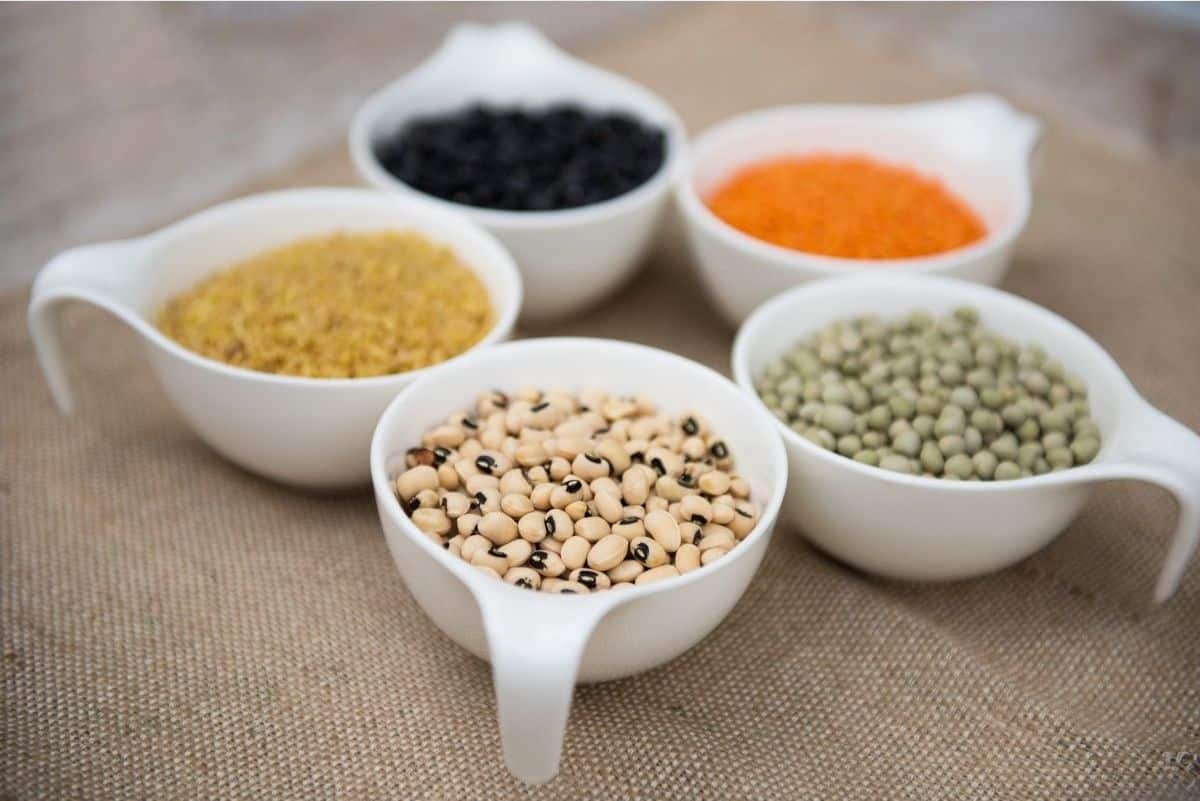
Contrary to popular belief, it is actually tremendously easy to consume enough protein on a plant-based diet, as long as a person eats a variety of foods throughout the day. Good sources of plant protein include legumes (black beans, lentils, chickpeas), soybeans (tofu, edamame, tempeh), seitan, meat alternatives (such as Beyond or Gardein), plant-based milk (soy milk and flax milk), nuts, seeds, and whole grains.
Protein requirements can be met when a variety of plant foods are eaten and overall calorie needs are met. All the essential amino acids can be eaten throughout the day, and there is no need to “combine proteins” at each meal. Given the average requirement of protein is 42 grams per day, it’s no surprise that 97% of Americans consume an excess of protein. Yet the question “where am I going to get my protein from?” is still constantly asked.
On the flip side, less than 3% of Americans get even the recommended adequate intake of fiber. While excess protein consumption is related to a myriad of health conditions such as heart disease, type 2 diabetes, renal disease, cancer, constipation, and more, there is no upper limit to fiber intake, and increased fiber intake from plants can improve the very conditions previously mentioned and more. Maybe the conversation should be shifted from protein concerns to fiber concerns!
Need some high-protein recipe inspiration? Check out these recipes:
- 5-Minute Creamy Lentil Hummus
- Chickpea Scramble (Soy-Free & High-Protein Vegan Breakfast)
- Vegan High-Protein Teriyaki Mushroom Burgers
- Lentil & Split Pea Soup
- High Protein Bean & Tofu Salad with Garlic Tahini Dressing
- Chocolate Chip Protein Cookie Bars
- Chocolate Protein Bliss Balls
Myth: Soy is unhealthy to eat.
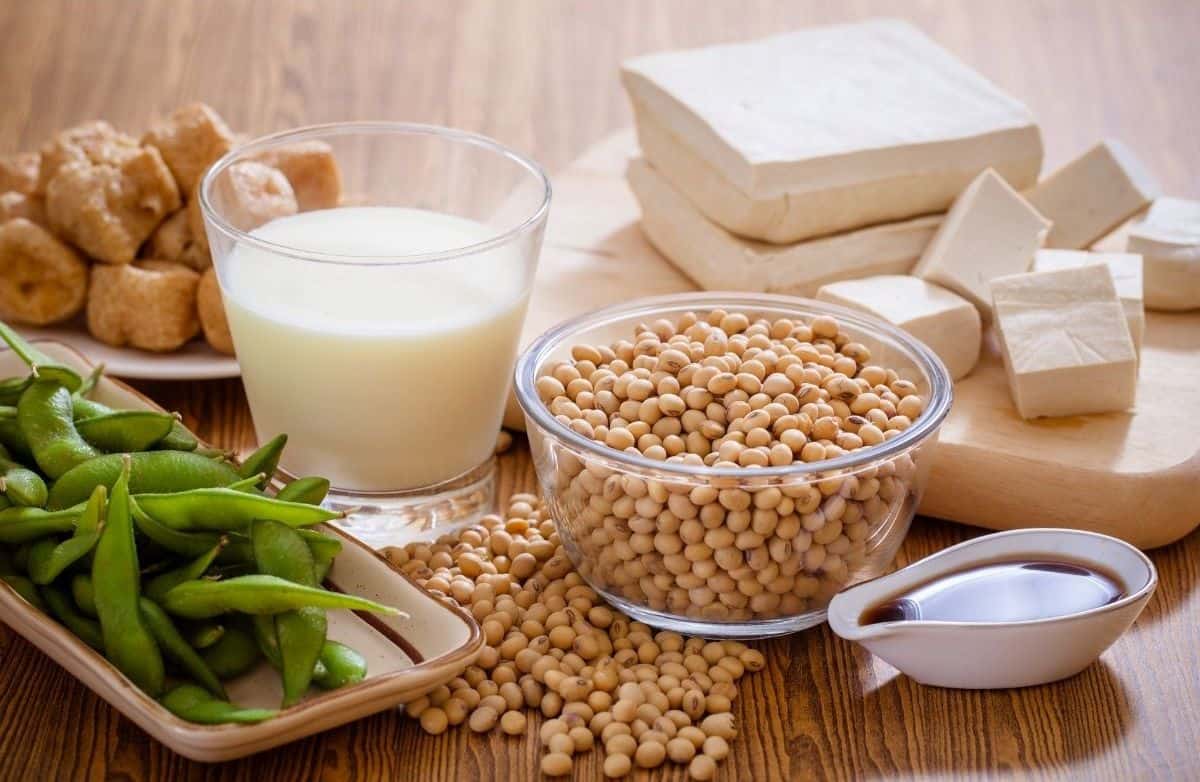
Soy foods include tofu, tempeh, soymilk, and other foods with soy protein and are good sources of a number of nutrients. Some of the most healthy, long-living civilizations in East Asia have enjoyed soy for thousands of years. However, articles in magazines and blogs on the Internet have caused many to raise questions on the safety of eating soy regularly. Many of the articles are quick to say that soy contains estrogens which, in excess, can increase the risk for cancer, decrease testosterone, and cause gynecomastia (breast tissue growth in men).
Soy actually contains the plant phytoestrogens called isoflavones, which are not the same nor act the same as animal estrogen. Studies have found that incredibly large amounts of soy every day (as many as 12-20) can cause some feminizing effects, but usual consistent amounts (up to 6 servings daily) daily saw no change. Soy has been studied for decades on its positive effect on breast cancer, thyroid function, cognitive function, heart health, and more!
Perhaps what we should be focusing on instead of soy’s inherent traits is how it’s now being processed and grown and which versions of soy we choose to eat. GMO soy has also raised many questions and concerns from consumers and scientists. What we know is that soy has been grown and eaten by humans for thousands of years. What is not concluded with 100% certainty is whether or not genetically modified plants can disrupt the way our bodies were meant to naturally function. For consumers who are concerned about eating GMO soy, most, if not all, soy sold for consumption (tofu, tempeh, soymilk, etc.) in restaurants and grocery stores are GMO-free. However, to be extra certain it is not a GMO food, look for USDA Certified Organic products as these products must also be GMO-free in order to be certified.
Myth: Fake meat is the only way we can get enough protein.
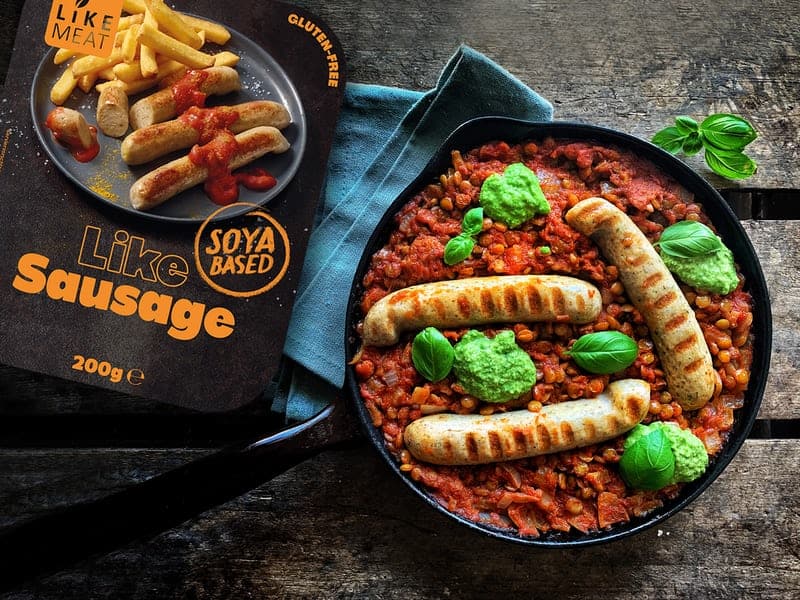
Today there are so many different plant-based alternatives available that taste and feel just like the real thing! When transitioning to a plant-based diet, you can most definitely swap out the meats you normally eat for plant-based alternatives. However, you don’t need fake meats to get all the nutrition you need. Meat alternatives such as Beyond Burgers and Impossible Foods are becoming increasingly popular and can fit into a healthy diet, but there are many whole, plant-based food options that are sure to please even the pickiest palate. Remember that the meat analogs are made from plant ingredients first, and you can get the protein from a pea in peas themselves, as well as in a veggie patty.
It’s important to note that not all meat alternatives are created equal- be sure to read the ingredients and nutrition fact labels to ensure they are made from quality ingredients and not too high in salt, added refined sugars, or saturated fat.
Myth: Too many carbohydrates will make you fat.
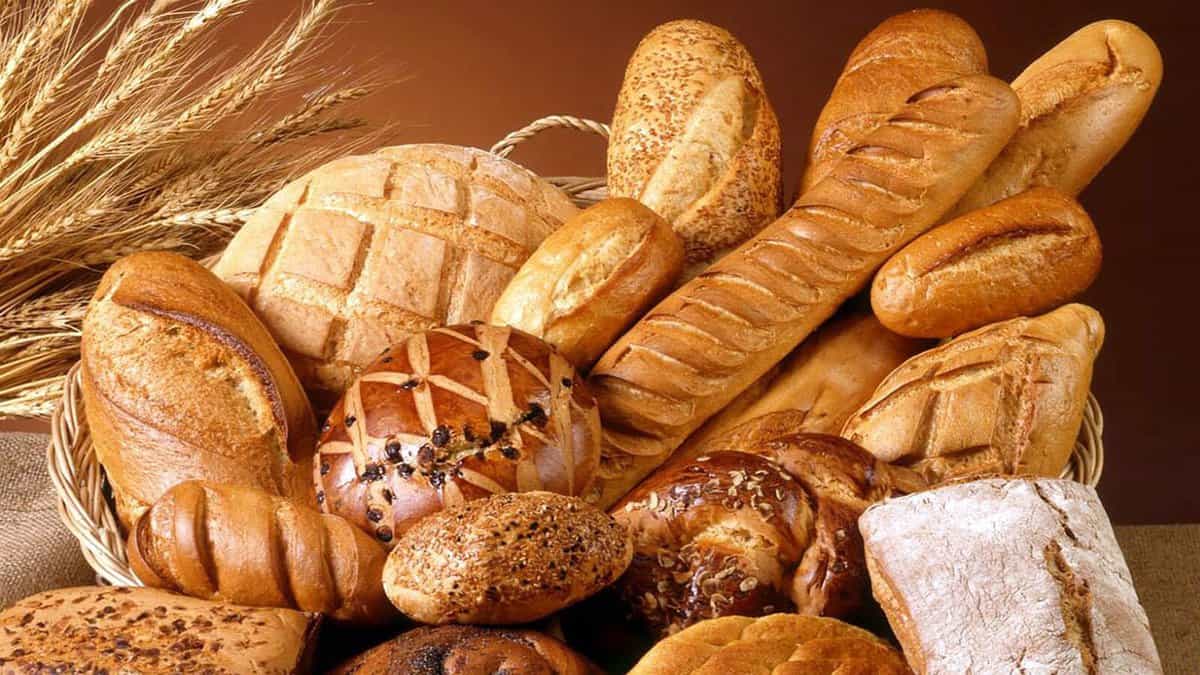
While it is true that an excess of anything in calories will cause weight gain, eating a carbohydrate-rich diet does not necessarily cause weight gain. Generally, when people think of eating a lot of carbs, they think of pasta with a cream sauce, french fries, buttered bread, cookies, pizza, cereal, etc. These are generally refined foods combined with salt, oil/fat, and sugar that can bypass our hunger and fullness systems in the brain and cause us to want to eat more, which leads to weight gain. However, eating mostly whole-food (including whole grains, sweet potatoes, potatoes, corn, etc), unrefined carbohydrate sources can actually keep us feeling more satisfied.
Does eating a high-carb diet, then, have better results in weight loss/gain/maintenance than a high-fat diet? The DIETFITS Randomized Clinical Trial took 609 overweight adults and randomized them into either a healthy low-fat diet or a healthy low-carb diet and observed the changes over a 12 month period. These diets focused on whole foods, maximizing vegetable intake, and lowering sugar, refined flours, and trans fats. Participants lost over 5kg on average with no difference between groups. This tells us that eating either low carb or low fat can have benefits, but the quality and source of your food is where the weight loss or maintenance will show.
Myth: Going vegan/vegetarian means you have to give up most foods.
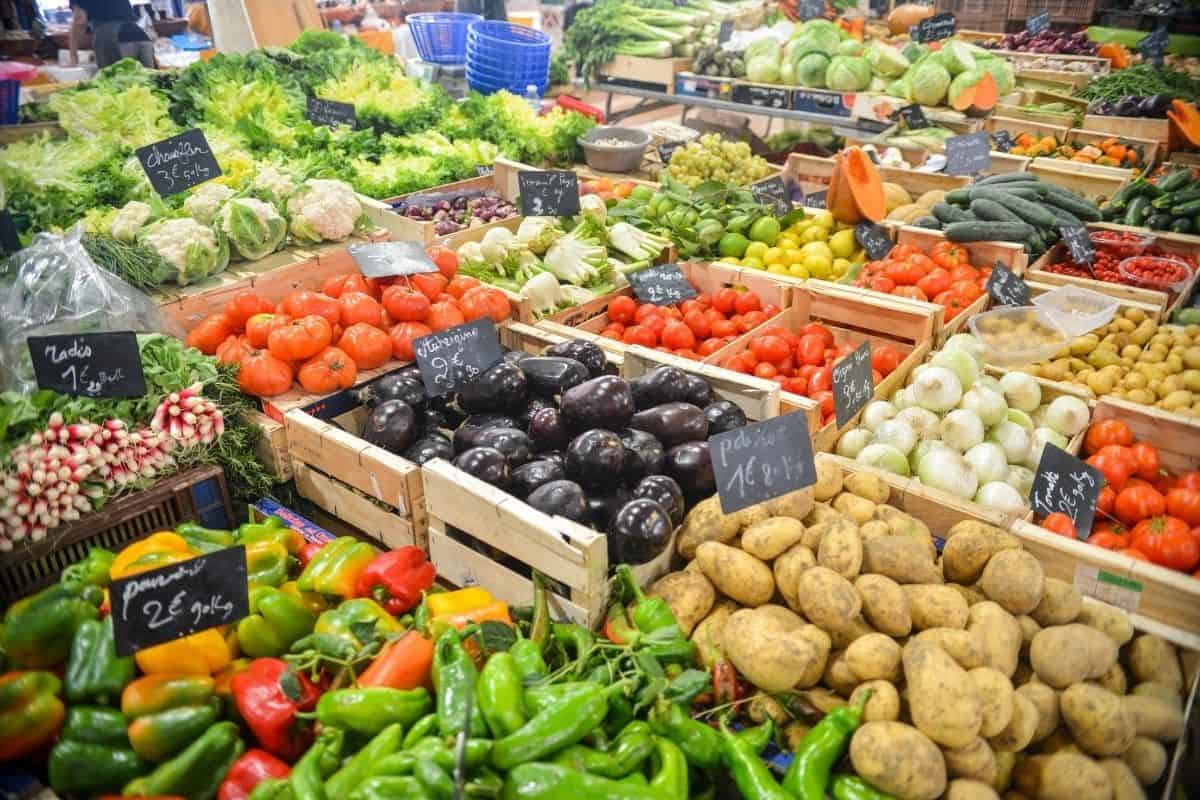
Plant-based eaters have a huge amount of nutrient-dense food options to choose from. Reducing or eliminating animal products allows people to explore new food and see what they can make or try that they haven’t ever had before. Many people report eating more of a variety after eating plant-based vs. eating a standard American diet. Most meals actually only contain a small number of animal products and the rest are made from plants. Your favorite spaghetti and meatballs? Spaghetti is made from wheat, tomato sauce from tomatoes, and you can easily whip up some veggie meatballs to replace the meat! There are also incredible tasting cheese alternatives that will round out the dish perfectly. Serve with a side salad and some garlic bread, and you have a fully plant-based meal! It’s all about being adventurous and creative.
A plant-based diet is typically rich in whole grains (brown rice, millet, barley, oats, whole wheat bread), a variety of fruits and vegetables, seeds, nuts, legumes (such as chickpeas, lentils, navy beans), soy foods, seitan, etc.
You may want to work with a registered dietitian who specializes in plant-based nutrition if you’d like to ensure you are getting all the nutrients you need. You can check out Amanda’s meal plans and counseling services here.
Myth: Vegetarians/Vegans cannot eat enough iron
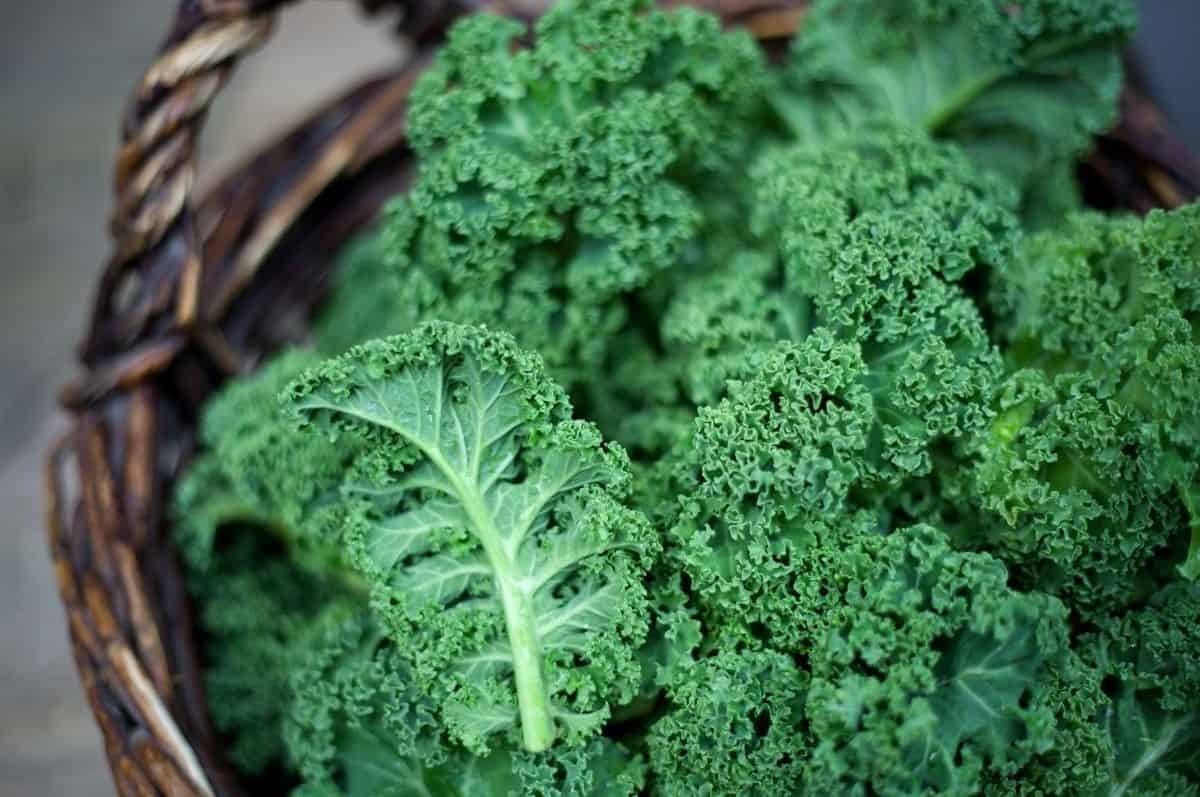
Research shows that vegans have average iron intakes that are similar to or higher than those of non-vegetarians higher than the RDA. There are several reasons why it is easy to get enough iron on just plants:
- Many commonly eaten foods are high in iron: dark leafy greens (kale, collard greens), beans, tofu, tempeh, blackstrap molasses, quinoa, tahini, fortified breakfast cereals, etc.
- Plant-based diets are good sources of vitamin C, which greatly increases the absorption of iron. Adding vitamin C rich foods such as tomatoes, bell peppers, or citrus fruit to a meal will increase iron absorption in the gut.
- Many combinations of commonly eaten foods, such as beans and tomato sauce or stir-fried tofu and broccoli, are high in both vitamin C and iron. Broccoli and bok choy are foods that contain both vitamin C and iron.
Plant-based sources of iron differ greatly from animal-based iron. Heme iron, from animal products, is often praised for being more “biologically available” to our bodies, meaning it is absorbed easily and rapidly in the body. However, our body has no mechanism to regulate heme-iron intake and like all things, anything in excess can cause a host of problems. High levels of heme iron intake– the kind found in red meat and chicken- have been linked to Alzheimer’s and Parkinson’s diseases, arthritis, type 2 diabetes, cardiovascular disease, colorectal and other cancers. Non-heme iron is often deemed inferior to heme iron because it is not as easily absorbed; However, this form can be more regulated by the body. When we have a low amount of iron in our bodies, the intestines will actually absorb more iron from our food. When we have excess iron, the intestines will close off absorbing iron as it does not need any more than it has now.
To avoid iron overload, it is recommended to consume the non-heme form of iron in plants over the heme form in animal products.
Need some recipe inspiration? Check out these recipes:
- Vegan Ranch Kale Chips
- Crispy Air Fryer Herbed Tofu
- Sheet Pan Tofu Taco Meat (Gluten-Free)
- Easy Italian Seasoned Tempeh (6-Ingredients + Gluten-free)
- Grilled Vegetable Salad with Chickpeas and Tahini Dressing
- Date-Sweetened Turmeric Tahini Chocolate Chip Cookies
Myth: Vegan diets can make you lose energy.

This claim is very common, especially among people who “tried” veganism and then had to eat meat because they were losing too much energy. However, this can be applied to any diet. Many who switch to veganism overnight or very quickly are also more prone to not adjusting to the volume of food they need to eat on a regular basis. Plant foods are higher in volume and lower in calories so we need to be eating more bites of food to get the same amount of energy from a burger, for example.
So, because they end up eating fewer calories than what they are used to, their bodies are not able to keep up with their normal processes on less energy. Many times, a deficiency in energy is solved by simply identifying nutrient-dense foods (like avocados, smoothies, energy bars, nuts, seeds, dates, nut butter, and more) and incorporating them into your diet more often.
Additionally, eating more whole plant foods (minimally processed foods) can cause a boost of energy because they are usually easier to digest, which means the body has more energy to give back to you than to spend trying to process a heavy order of cheesy animal fries! A diet higher in fiber also encourages more bowel movements, which can help you feel less lethargic and backed up on a regular basis.
Myth: Vegetarians/Vegans cannot get enough calcium without milk or dairy products.
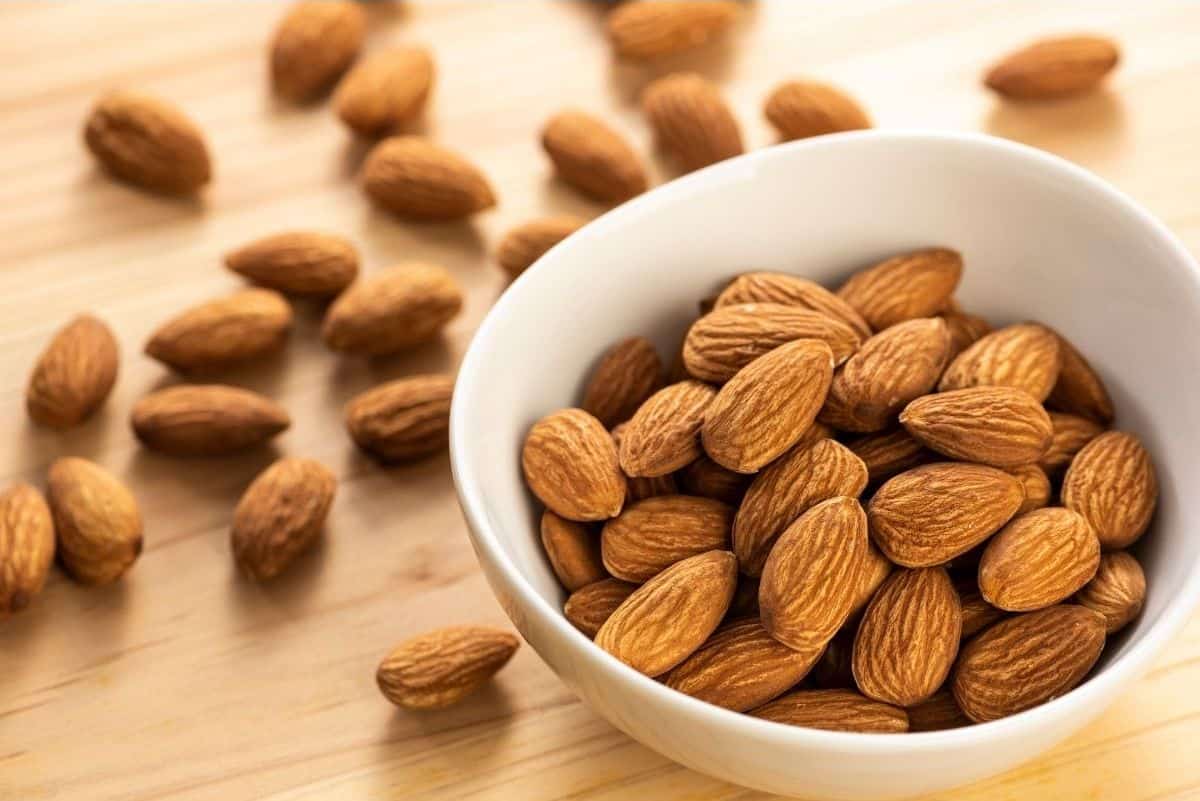
Just like with protein and iron, calcium needs can easily be met with zero animal products. There are a variety of calcium-rich plants that may provide additional benefits for bone health since they can be good sources of other compounds believed to affect bone health. Other factors that contribute to good bone health include exercise and vitamin D intake.
Many foods today are fortified with calcium as calcium intake is not just a concern for those who choose to forego dairy. In fact, the average calcium intakes of non-vegetarians in America were also well below recommended intakes for every age and gender group, especially for females and adults older than 50.
Lifestyle factors that contribute to poor bone healthcare include high sodium intake, extreme weight loss, alcohol, and smoking.
Naturally, calcium-rich foods include leafy green vegetables, bok choy, calcium-set tofu, and almonds. Calcium-fortified foods that are also plant-based include certain types of juices, fortified breakfast cereals, protein bars, margarine, and many non-dairy soy, rice, almond, and oat beverages.
Final takeaway
As stated in the first vegan nutrition myths debunking, a well-planned plant-based diet provides all the nutrients needed for all stages of life. They may provide health benefits in the prevention and treatment of certain diseases as well. Remember that all animals get their nutrients from plants, so we can get everything we get from animals from plants just as well! To learn more about plant-based diets and nutrition, check out these resources:
- http://nutritionfacts.org/
- https://vegetariannutrition.net/
- https://www.pcrm.org
- https://www.godairyfree.org
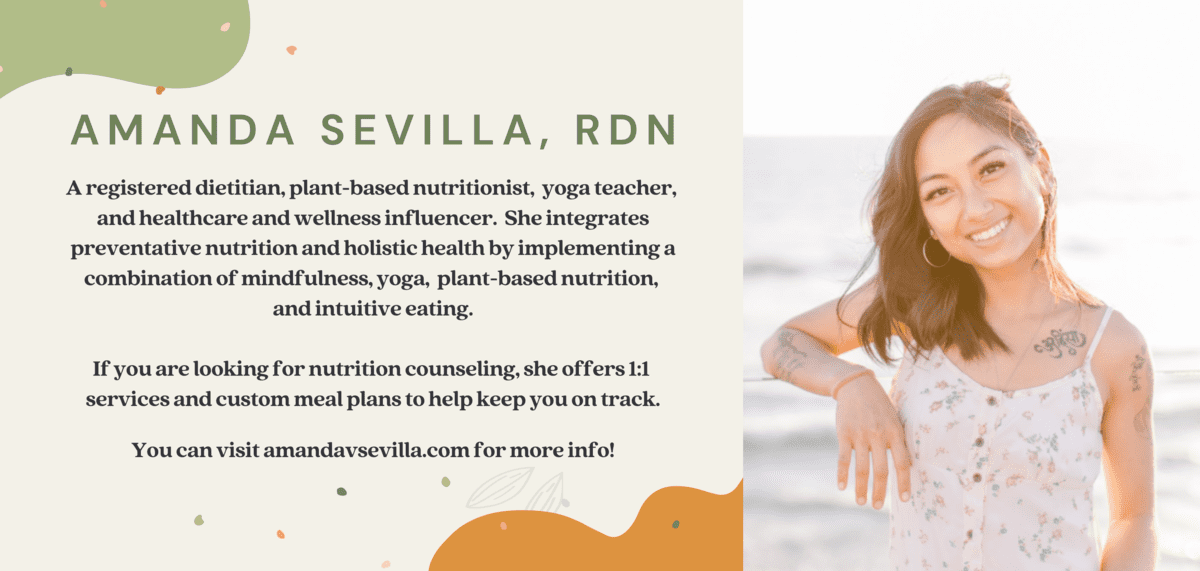

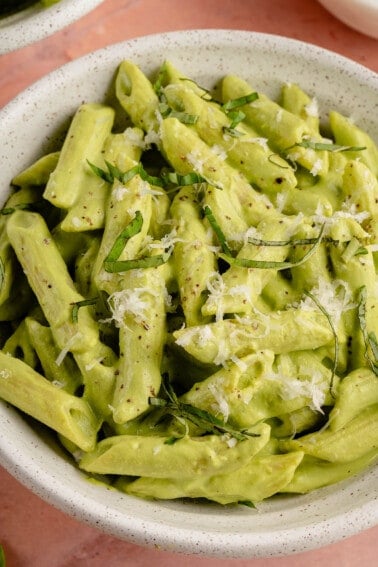
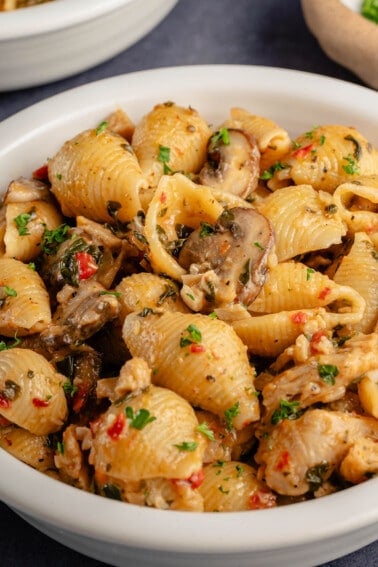









Thank you for including links to all the studies you mentioned! And I love how thoroughly and concisely you explained all of this.